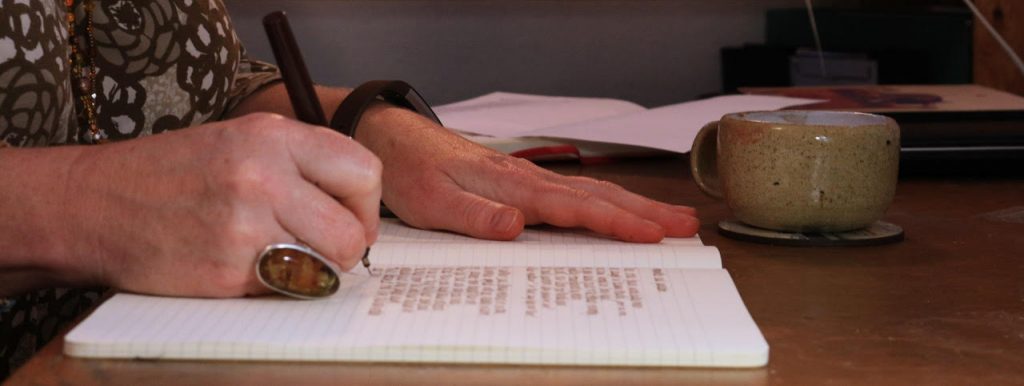As anyone knows who’s been to a workshop or event I’ve facilitated (or follows what the afternoon knows), this is something I bang on about a lot. I’m unapologetic about it, though, because it’s such an important dimension of reading (and indeed experiencing any kind of art). Surely anything that pierces our loneliness—whether from each other or from (parts of) ourselves—is worth celebrating? So today I want to think about how reading helps us know we are not alone, and do so in relation to the understated but marvellous poem ‘Things’ by Fleur Adcock.
‘Things’ makes visible something most people can relate to, and usually brings nods, sighs or laughs of recognition when I share it in a group. Funny in a sort of a laugh-or-you’ll-cry way, it evokes the experience of being awake in the small hours, fretting, and feeling ‘worse and worse and worse’. How lonely it feels; how hard to tell how bad something “really” is; how one anxious or despairing thought inevitably brings others in its train; and how we can get into a sort of meta-anxiety about the impact of the anxiety and the consequent wakefulness. I hear the opening of the poem as Voice B, who is trying to calm or quiet Voice A, who has as it were been speaking before the poem begins. (Just to be clear: I’m meaning an internal conversation.) Voice A has clearly been obsessing about something, be it ‘having behaved foolishly in public’ or some ‘miniature betrayal’.
‘Miniature betrayal’ is knocking on the oxymoronic, a quietly brilliant juxtaposition of words which contains in itself the struggle to “get things in perspective”. The repeated phrase ‘there are worse things’ echoes, of course, the (British?) expression “worse things happen at sea’, and also brings to mind that other, more recent expression: “It’s such a first world problem”. When used of another’s distress these words might seek to soothe or might be casually or even coldly dismissive; when used of ourselves they can often be a sort of apology for feelings of distress. But both sayings function the same way, in that they simultaneously acknowledge and dismiss the distress.
But even though the truth in these expressions can’t be denied—bad things are indeed happening everywhere, all the time—it doesn’t necessarily follow that we have no “right” to be feeling as bad as we do about whatever it is that’s keeping us awake in the small hours. Indeed, as a therapist I’m very familiar with the fact that letting things be the size they truly are to you, however “disproportionate” that may seem, is a really, really good way to allow the size to change, if it needs to—whether that means something comes to seem less important than it once did, or perhaps assumes a deep significance which hadn’t previously been apparent.
And after all, we can see in ‘Things’ that the attempt to minimise only brings escalation: ‘all the worse things come stalking in/And stand icily about the bed looking worse and worse and worse’. I love that ‘icily’: so beautifully judged, conveying a sense of large, possibly disapproving, possibly frightening things looming over us; but also suggesting the soul-chill we can find ourselves with when, having begun by fretting about some social faux paux, we find we’ve slid all the way down the snake into a profound existential crisis and are mourning the shortness of life and the (apparent) meaninglessness of all that we do. Phew! At that point, it may be time—as Dick Davis has it in ‘6am Thoughts‘—to ‘heave yourself out, make the tea, and give in’.
Quite apart from ‘Things” psychological insights, then, I treasure it because it lets me know that what happens to me in the small hours isn’t freakish or unusual. Isn’t it comforting to know this is a shared experience? I read this poem and know that I am not alone.
Are there any poems which do that for you?

© Lucy Crispin 2019
The Future by Spike Milligan. The boy looks up the road to the future…….
It cleverly and quickly tells me I am not alone with my worries. It captures so many angles in just a few lines.
Phil, it’s so good to hear that you recognise the feeling of being “got” by a poem. Thank you for telling me which one. I’m feeling tantalised, though, because your comment left me wanting to want to read ‘The Future’ straight away but, having searched the interweb, I can’t find it. I’d love to read it. Do you have a copy I could look at?